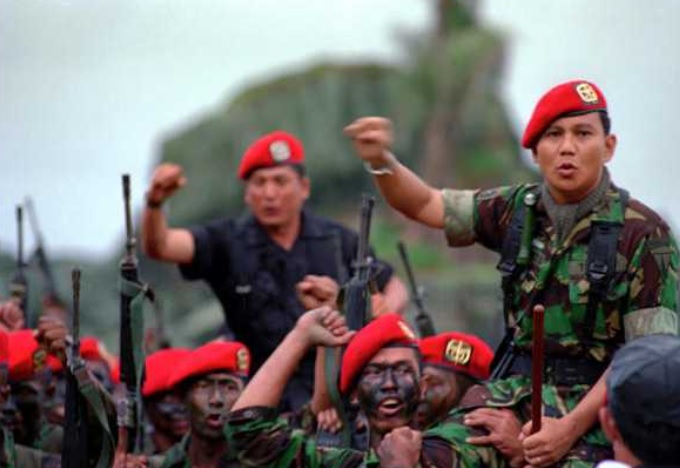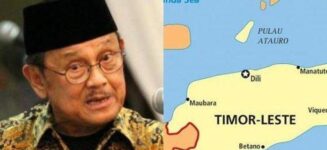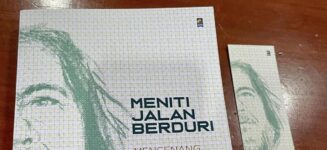A concise version has been published in The Jakarta Globe July 23, 2010. http://www.thejakartaglobe.com/opinion/rebuilding-kopassus/387282
The visiting U.S. defense minister Robert Gates said U.S. would resume ties with Indonesia’s elite corps Kopassus, but adds that this referred to what he called “measured and gradual programs of security cooperation activities”. His cautious remarks may indicate problems the unit has not resolved as expected by the U.S. Senate.
When the corps, notorious of past abuses, since recently planned to learn the a,b,c of human rights, one can only appreciate and be hopeful. But in the case of Indonesia’s Kopassus, it begs questions.
The corps has agreed with the country’s national human rights commission Komnas-HAM to hold the courses, which according to the commissioners, has been welcomed “with great enthusiasm”.1) But will it help them to come clean?
The history of Kopassus and its predecessors – the present commander Maj.Gen. Lodewijk Paulus has acknowledged – is marked by “dark past”.2) A past he did not specify, but will surely include the genocide of 1965-66.
The killings, unlike the programmatic or mechanical methods used by the Khmer Rouge and the Nazis, were “done face to face”, Australian academic Greg Fealy has noted (2009) 3). In this, we know, the corps’ predecessor played a leading role.
While this happened decades ago, one wonders whether a proud corps with patriotic credentials, professionally trained at home and abroad, will turn hundred eighty degrees leaving its legacy as a dead past. Its commander has now for the first time admitted the corps’ “dark” chapter, but will he be able to turn a new page without holding his seniors accountable?
Indonesia’s popular legend called Mpu Gandring has warned once you cheat the holy man, a tragedy will continue even more bloodier until you resolve it. Or, if you like, the analogy with ‘original sin’ may be recalled that once you starts with Adam’s fail, the image of your wrongdoing may continue to imprint a shadow until you take a radical break.
Take East Timor, the ghost that haunts them. Geoffrey Robinson, a U.N. adviser during the plebiscite there in 1999 suggested the connection between the Dili violence with the 1965 events. He saw the military-sponsored militia amok as a consequence of the fact that they run – much to their anger and dismay, and in great contrast to 1965 events – into hundreds of foreign and domestic media and observers, and lost the plebiscite. 4)
This, in addition to the ‘B’ plan, should explain why the violence from April to September 1999 led by two successive Kopassus district commanders – Lt.col Tono Suratman and Lt. Col. Nur Moeis – grew in scale and intensity.
Moreover, the corps has recently been denied the prestigious chance it has always wanted to restore: the training the U.S banned since 1999. The ban has swung the diplomatic pendulum for months as Jakarta made it the litmus test for a ‘comprehensive partnership’ deal to be signed during the forthcoming President Barack Obama’s visit.
Yet, until yesterday, the ban has remained — despite reported opposition from the Pentagon. A letter by 13 Congress men (dd. May 13), including Patrick Leahy, who initiated the ban, stresses the need for the military “(to hold) senior officers accountable for past abuses.”
The letter specifically pointed to the “Unit 81” (D 81) – the anti-terror detachment then led by Capt. Prabowo Subianto. In counter-insurgency war against popular resistance, atrocities occur when retaliations were deemed necessary. In ‘punishing’ villagers of Kraras, near Viqueque, September 1983, the unit, however, went into incredible “face to face” cruelty – reminding us yet again to the 1965 events.
A backlash in the early 1990s necessitated a strategic change – the ‘Timorization of war’ – using locals as Ninja squads to terrorize the society. Surely, all these must have been locally memorized as a great traumatic experience.
Such methods were parts of training at home and abroad. At issue for a country that neglected the need toward transitional justice and national reconciliation to resolve past abuses, is the fact that the corps’ alleged atrocities were never brought to justice.
It’s important here to recall that impunity has been systematically built in at the very outset – i.e. when the military rejected the human rights investigation body (KPP-HAM)’s demand in 2000 to include “aggression” and “war crimes” as “crimes against humanity”.
In real terms, the U.S. ban was hypocritical since they supported Soeharto’s invasion, nonetheless critics saying that the ban ignored the corps reform, must consider this.
As a new body has been formed apparently to include the military in overall anti terror efforts, the corps, in particular its D 81, needs not see police’s mobile brigade anti-terror unit, the Densus 88, with jealousy — just as the latter should see tasks and training may be necessary for new generation of D 81 to deal with some dangers for the nation that go beyond the Densus 88 capacity.
But the Kopassus still needs radical transformation, which will test the limit of Jakarta’s political will. For, the facts are: the corps’ senior officers with “dark past” have all been promoted; most recently justice minister frankly expressed unwillingness to resolve past abuses (on 1998 kidnaps and May riots); a former foreign affairs minister, now a presidential adviser, considered human rights prosecution “outdated”. 5) Which all, needless to say, must have offended victims.
With Kopassus now starting reforms, but still avoiding the need to resolve its unaccountability for the past, the puzzle will only grow on how the unit will get through the twilight zone in which it willingly or unwillingly finds itself entangled.
@ The writer is a journalist.



